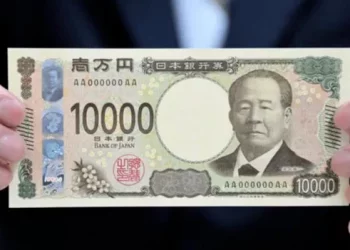In the dynamic landscape of international trade and finance, currency exchange is a crucial aspect that businesses and individuals must navigate. For those involved in transactions between South Africa and China, the conversion from South African Rands (ZAR) to Yuan (CNY) becomes a pivotal point of consideration. This article aims to provide a comprehensive guide on how to convert ZAR to Yuan efficiently and make informed decisions in the process.
Understanding the Exchange Rate
The first step in any currency conversion is understanding the exchange rate. The ZAR to Yuan exchange rate refers to the value at which one South African Rand can be exchanged for Chinese Yuan. This rate fluctuates based on various economic factors, geopolitical events, and market conditions. To initiate the conversion process, it is imperative to be aware of the current exchange rate and how it might impact the transaction.
Factors Influencing ZAR to Yuan Exchange Rate
Several factors influence the ZAR to Yuan exchange rate, ranging from economic indicators to geopolitical developments. Economic stability, interest rates, inflation, and political events in both South Africa and China contribute to the volatility of the exchange rate. Keeping abreast of these factors is essential for anyone seeking to convert ZAR to Yuan at an advantageous rate.
Choosing the Right Exchange Platform
Selecting the right platform for currency exchange is a critical decision. Numerous options, including banks, currency exchange offices, and online platforms, offer ZAR to Yuan conversion services. Each has its advantages and disadvantages, such as fees, processing time, and accessibility. Conducting thorough research on these platforms ensures a seamless conversion process with minimal costs.
Online Currency Converters: A Convenient Option
In the digital age, online currency converters have gained popularity for their convenience and accessibility. These platforms provide real-time exchange rates and facilitate ZAR to Yuan conversions with a few clicks. However, users must exercise caution and choose reputable online converters to ensure the security of their transactions and the accuracy of the exchange rate.
Bank Transactions: Traditional yet Reliable
Banks remain a traditional but reliable option for converting ZAR to Yuan. Many banks offer currency exchange services, and customers can visit their local branches or use online banking platforms. While this method may have slightly higher fees compared to online converters, it often provides a sense of security and familiarity to users.
Currency Exchange Regulations
Before engaging in ZAR to Yuan conversions, it is crucial to be aware of any currency exchange regulations imposed by the respective governments. Both South Africa and China may have specific rules and restrictions regarding the amount of currency that can be converted, documentation requirements, and reporting obligations. Adhering to these regulations is essential to avoid legal complications.
Timing Your Currency Conversion
The timing of a currency conversion can significantly impact the final amount received in Yuan. Exchange rates fluctuate throughout the day due to market demand and supply. Monitoring the market and choosing an opportune time to convert ZAR to Yuan can result in a more favorable exchange rate, maximizing the value of the transaction.
Minimizing Transaction Costs
Transaction costs, including fees and commissions, are inherent in currency exchanges. To optimize the ZAR to Yuan conversion, individuals and businesses should explore ways to minimize these costs. Comparing fees across different platforms, negotiating with banks, and considering bulk transactions are strategies to reduce the financial impact of currency conversions.
Hedging Strategies for Businesses
Businesses engaged in regular ZAR to Yuan transactions may benefit from hedging strategies. Forward contracts and options are financial instruments that allow businesses to lock in exchange rates for future transactions, providing a level of certainty in the face of currency volatility. Implementing such strategies requires a thorough understanding of the market and careful consideration of risk tolerance.
Conclusion
In conclusion, converting South African Rands to Yuan involves navigating a complex landscape of exchange rates, regulations, and transaction costs. By understanding the factors influencing the ZAR to Yuan exchange rate, choosing the right exchange platform, and employing strategic timing and cost-minimization techniques, individuals and businesses can make informed decisions to optimize their currency conversions. Staying informed and adapting to the evolving financial environment ensures a seamless and advantageous ZAR to Yuan conversion experience.
Related Topics:
Understanding CNY in Forex: The Chinese Yuan’s Role in Global Currency Markets
What is Chinese Money Called:A Comprehensive Overview
The Value of 1 Yuan: Understanding China’s Currency



























